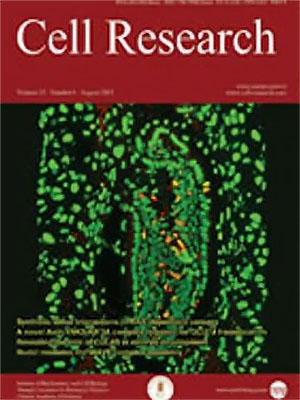
Volume 14, No 3, Jun 2004
ISSN: 1001-0602
EISSN: 1748-7838 2018
impact factor 17.848*
(Clarivate Analytics, 2019)
Volume 14 Issue 3, June 2004: 251-256
ORIGINAL ARTICLES
Studies on the allostimulatory function of dendritic cells from HCV-HIV-1 co-infected patients
Justin STEBBING, Steve PATTERSON, Simon PORTSMOUTH, Claire THOMAS, Robert Glassman, Adrian WILDFIRE, Frances GOTCH, Mark BOWER, Mark NELSON, Brian GAZZARD
The Department of Immunology, Division of Investigative Science, Faculty of Medicine, Imperial College of Science, Technology and Medicine, The Chelsea and Westminster Hospital, 369 Fulham Road, London SW10 9NH,UK.
Correspondence: Justin STEBBING(j.stebbing@imperial.ac.uk )
There is increasing recognition of the potential morbidity and mortality associated with HIV-1 and hepatitis C (HCV) co-infection. HIV appears to adversely affect HCV disease while the reciprocal effect of HCV on HIV remains controversial. We therefore studied the effect of co-infection on dendritic cell function versus HIV infection alone, as previous work has shown that HCV impairs dendritic cell (DC) function. HIV-1 positive individuals with HCV were matched for CD4 count, HIV-1 RNA viral load and therapy, to HIV-1 positive patients without HCV. Monocyte-derived DC were generated and mixed leukocyte reactions were performed. We assessed allostimulatory capacity with and without administration of exogenous Th1 cytokines, using thymidine uptake and cell division analyses with the vital dye CFSE. We found that monocyte-derived DC from co-infected individuals showed no significant differences in allostimulatory capacity to ex vivo generated DC from HIV-1 infected individuals without HCV. Unlike the situation with HCV infection alone, this impairment was not reversed by increasing concentrations of either interleukin-2 or -12. Monocyte-derived DC from HIV-1 and HCV co-infected individuals have a similar allostimulatory capacity to DC from matched patients with HIV-1 alone. These findings are compatible with results of prior clinical studies that found no evidence that HCV co-infection altered HIV disease progression and has implications for immunotherapeutic approaches in co-infected individuals.
FULL TEXT | PDF
Browse 1915


